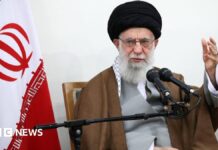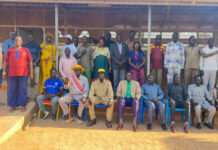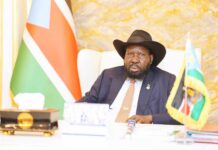A coalition of South Sudanese youth, civil society organizations, and religious leaders has called on the Revitalized Transitional Government of National Unity (RTGoNU), the African Union (AU), and the United Nations (UN) to ensure that appointments to two key transitional justice bodies are conducted with integrity, impartiality, and inclusivity.
The appeal follows the conclusion of a three-day capacity-building workshop organized by the Center for Peace and Advocacy (CPA) with support from the United Nations Mission in South Sudan (UNMISS) Human Rights Division. The event took place at Fire Tree Hotel in Juba from June 30 to July 2 under the theme: “Strengthening the Capacity of Youth and Civil Society Organizations on African Union Transitional Justice in South Sudan.”
The workshop brought together 35 participants from across the country, including youth representatives, civil society actors, members of the media, and faith-based leaders. The training aimed to enhance understanding of the African Union Transitional Justice Policy (AUTJP) and equip participants with advocacy tools to promote justice, accountability, and reconciliation in the country.
Participants specifically urged the swift and transparent appointment of commissioners to the Commission for Truth, Reconciliation and Healing (CTRH) and the Compensation and Reparation Authority (CRA) — two critical bodies mandated under Chapter Five of the 2018 Revitalized Agreement on the Resolution of the Conflict in the Republic of South Sudan (R-ARCSS).
In a joint statement, the participants made urgent appointment of commissioners to the CTRH and CRA with a focus on integrity, neutrality, and inclusivity.
Expedited work of the Selection Panel, ensuring transparency and fairness in the selection process. Immediate release of the First Vice President and all political detainees. Renewed political dialogue among all parties to the peace agreement, including the Incumbent TGoNU, SPLM/A-IO, SSOA, Former Detainees (FDs), and Other Political Parties (OPP), to end ongoing violence.
Participants also stressed the importance of including marginalized groups — such as persons with disabilities, women, youth, internally displaced persons (IDPs), stateless individuals, minority tribes, refugees, and the elderly — in transitional justice mechanisms and national decision-making processes.
The workshop concluded with a unified commitment among participants to continue advocating for inclusive, rights-based, and people-centered approaches to justice, reconciliation, and healing in South Sudan.





